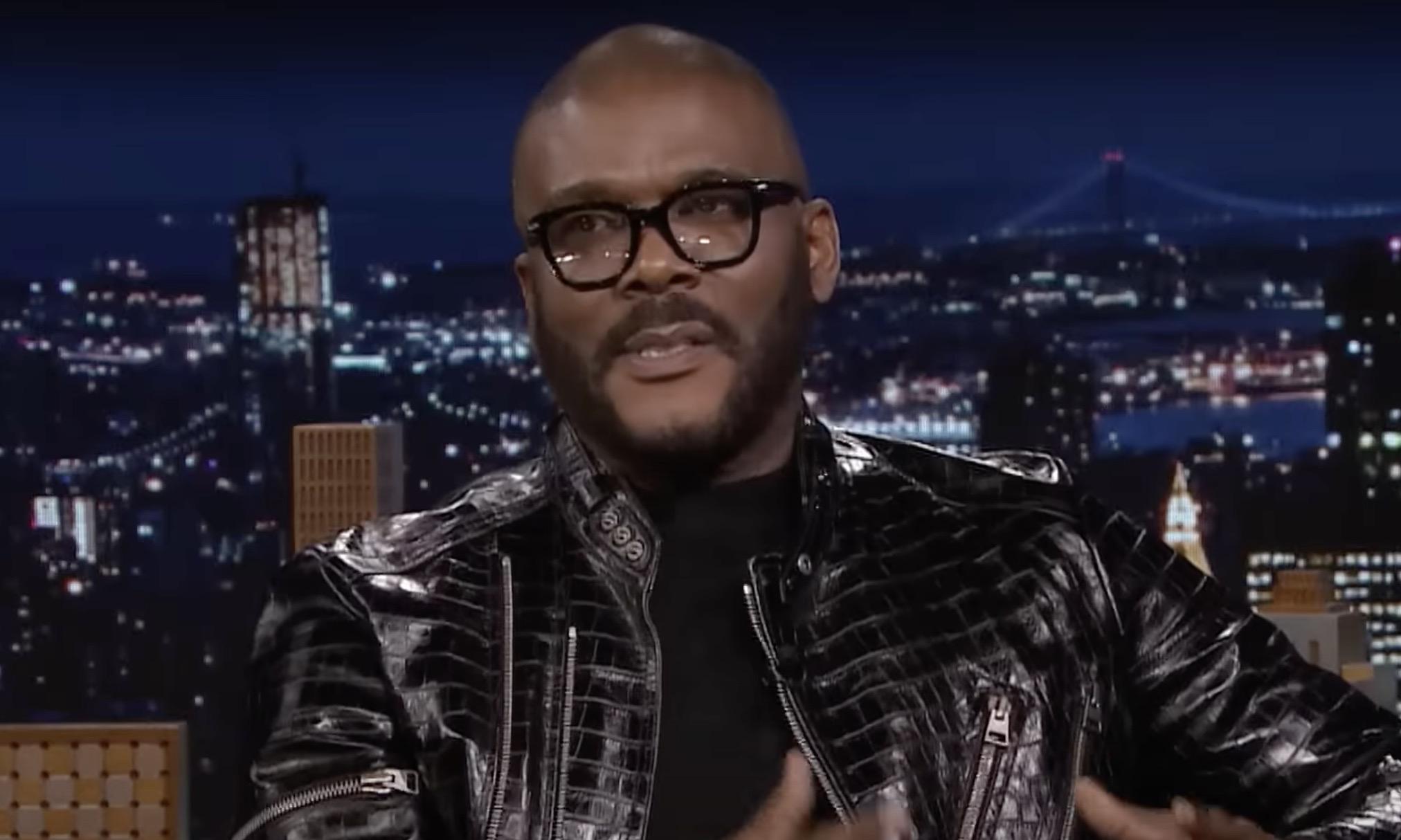The preview of Sora alone was enough to send many filmmakers around the world into a tizzy. Earlier this month, Sam Altman's OpenAI showcased its latest text-to-video model, Sora. The new AI model can create one-minute-long HD videos from prompts in natural language. As we know, the model still needs to be in the public domain, but OpenAI has shared some stunning videos that raise many questions about the future of filmmaking.
Tyler Perry Pauses $800 Million Studio Expansion Amid Sora AI's Cinematic Breakthrough
Prominent actor, filmmaker, and studio owner Tyler Perry is among those who are apprehensive about Sora's impeccable cinematic output. According to a report in The Hollywood Reporter, Perry has reportedly put his ambitious $800 million studio expansion plan on hold after seeing Sora's capabilities. The filmmaker also raised alarm about the potential impact of the technology.
"Being told that it can do all of these things is one thing, but actually seeing the capabilities, it was mind-blowing," Perry stated.
Perry reportedly had intentions of undertaking a substantial expansion of his Atlanta studio. Twelve soundstages could have been situated on 330 acres. His intentions will not materialize at this time, especially in light of Sora's internet-wide attention.
Sora's Trailblazing AI: A New Era in Filmmaking or a Creative Cul-de-Sac?
The OpenAI model can generate videos of trailer quality in response to a few syllables of input. Although this could be perceived as a potential danger, numerous filmmakers and AI community members regard Sora as a monumental advancement and a pivotal moment in the development of generative AI. Multiple cameras and intricate settings ensure that the characters, backgrounds, and motions in the videos produced by Sora are consistent.
The Indian Express reports that it is critical to remember that Sora cannot produce feature-length films. At this time, it is unfounded to assert that something comparable to Sora will portend doom for the television and film industries. Until such time as prompt-assisted direction is universally accessible, substantial technological advancement is required.
This may represent an enormous technological leap. Experts have speculated, on the basis of reports, that there is no cause for concern, as the integration of AI could facilitate the optimization of specific industries, attract more innovative talent, and open up new opportunities for the film and television industries worldwide.
Film production, as an artistic endeavor, necessitates the integration of personal anecdotes and emotive experiences. Many directors, screenwriters, actors, and other artists have contributed to this undertaking. The production of a film requires the collaboration of numerous stakeholders. At this juncture, Sora and other AI models cannot replicate collaborative creative endeavors of this nature.
OpenAI's novel model signifies a departure from established production standards and could affect certain employment opportunities. However, similar to how photography did not supplant painting or printing supplanted literature, Sora will continue to evolve through enhancements and revisions. However, it may not threaten the film industry because it is founded on human-specific creativity.
Photo: The Tonight Show With Jimmy Fallon/YouTube Screenshot



 SpaceX Prioritizes Moon Mission Before Mars as Starship Development Accelerates
SpaceX Prioritizes Moon Mission Before Mars as Starship Development Accelerates  Elon Musk’s SpaceX Acquires xAI in Historic Deal Uniting Space and Artificial Intelligence
Elon Musk’s SpaceX Acquires xAI in Historic Deal Uniting Space and Artificial Intelligence  Nvidia, ByteDance, and the U.S.-China AI Chip Standoff Over H200 Exports
Nvidia, ByteDance, and the U.S.-China AI Chip Standoff Over H200 Exports  Anthropic Eyes $350 Billion Valuation as AI Funding and Share Sale Accelerate
Anthropic Eyes $350 Billion Valuation as AI Funding and Share Sale Accelerate  Google Cloud and Liberty Global Forge Strategic AI Partnership to Transform European Telecom Services
Google Cloud and Liberty Global Forge Strategic AI Partnership to Transform European Telecom Services  Palantir Stock Jumps After Strong Q4 Earnings Beat and Upbeat 2026 Revenue Forecast
Palantir Stock Jumps After Strong Q4 Earnings Beat and Upbeat 2026 Revenue Forecast  Nvidia Confirms Major OpenAI Investment Amid AI Funding Race
Nvidia Confirms Major OpenAI Investment Amid AI Funding Race  Baidu Approves $5 Billion Share Buyback and Plans First-Ever Dividend in 2026
Baidu Approves $5 Billion Share Buyback and Plans First-Ever Dividend in 2026  AMD Shares Slide Despite Earnings Beat as Cautious Revenue Outlook Weighs on Stock
AMD Shares Slide Despite Earnings Beat as Cautious Revenue Outlook Weighs on Stock  SpaceX Updates Starlink Privacy Policy to Allow AI Training as xAI Merger Talks and IPO Loom
SpaceX Updates Starlink Privacy Policy to Allow AI Training as xAI Merger Talks and IPO Loom  Nintendo Shares Slide After Earnings Miss Raises Switch 2 Margin Concerns
Nintendo Shares Slide After Earnings Miss Raises Switch 2 Margin Concerns  Nvidia CEO Jensen Huang Says AI Investment Boom Is Just Beginning as NVDA Shares Surge
Nvidia CEO Jensen Huang Says AI Investment Boom Is Just Beginning as NVDA Shares Surge  OpenAI Expands Enterprise AI Strategy With Major Hiring Push Ahead of New Business Offering
OpenAI Expands Enterprise AI Strategy With Major Hiring Push Ahead of New Business Offering  Amazon Stock Rebounds After Earnings as $200B Capex Plan Sparks AI Spending Debate
Amazon Stock Rebounds After Earnings as $200B Capex Plan Sparks AI Spending Debate  SoftBank Shares Slide After Arm Earnings Miss Fuels Tech Stock Sell-Off
SoftBank Shares Slide After Arm Earnings Miss Fuels Tech Stock Sell-Off  Oracle Plans $45–$50 Billion Funding Push in 2026 to Expand Cloud and AI Infrastructure
Oracle Plans $45–$50 Billion Funding Push in 2026 to Expand Cloud and AI Infrastructure  Elon Musk’s Empire: SpaceX, Tesla, and xAI Merger Talks Spark Investor Debate
Elon Musk’s Empire: SpaceX, Tesla, and xAI Merger Talks Spark Investor Debate 































